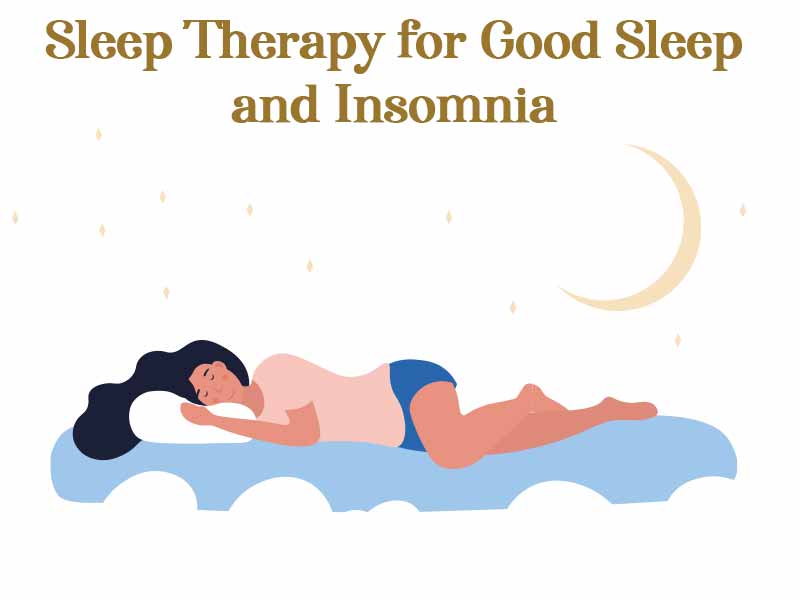We have all had those nights, right? The ones when sleep just won't come because of crazy schedules, that never-ending project, or life's stressors, like- a fight with your spouse, some screw-up at work, etc.; but when such restless/almost-sleepless nights become your new normal, that is when insomnia may be knocking at your door.
A lot of us may turn to sleeping pills as a quick and easy fix to catch up on our Z’s. However, studies show that these quick fixes not only lose their snooze-inducing effects over time but also turn into an addiction that can mess with your body.
In recent years, sleep therapy which comes under Cognitive Behavioural Therapy (CBT) has caught attention as a holistic solution.
HOW DOES SLEEP THERAPY WORK?
In sleep therapy, you address the thoughts & patterns which hamper quality of sleep & learn to replace them with positive thoughts & corrective behaviour.

Sleep therapy uses various techniques to help your build good sleep habits:
HERE’S DESCRIBING BRIEFLY:
- Sleep Hygiene: Focuses on creating a consistent sleep-wake schedule. This means cutting down on caffeine, alcohol and smoking and getting in regular exercise.
- Creating an optimal sleep environment: Adjusting the lights and temperature in your room to make it optimal for sound sleep. Even the kind of light you use at night can impact how you sleep.
- Stimulus control: Tweaking your habits to ensure your brain is not overstimulated by bedtime. This includes switching off your electronics an hour before bed, reading a book, etc.
- Paradoxical Intention: Here, you deliberately try to stay wide awake. This especially works for those who get anxious about sleep. By shifting focus off from ‘going to sleep’, it ends up helping them release tension & eventually drift off.
- Biofeedback: Connecting to a device/app that tracks your body signals (heart rate, brain waves, breathing) as you approach sleep. Once you understand your patterns, you can learn to control them to induce sleep.
Studies confirm that a full night's sleep is vital for both physical and mental health.

The CDC states that insufficient sleep—less than seven hours daily—increases the risk of death from heart disease, increases metabolic disorders like glucose intolerance, and mood disorders.
So, if you are also struggling with sleep, try these techniques mentioned. You can combine them with meditation and aromatherapy which will relax your body, calm your mind, and promote restful sleep.
Essential oils that can aid in good sleep:
Lavender Oil
Ylang Ylang Oil
Chamomile Oil
Peppermint Oil
Bergamot Oil
Sandalwood Oil
Cedarwood Oil
Marjoram Oil
Clary Sage Oil
Vetiver Oil
Eucalyptus Oil
Valerian Oil
Explore EKAM’s range of aromatherapy products including essential oil infused candles, single oils and wellness blends for a good night’s sleep.






536 comments
wNCqVQaZc
DHNrJEmhdKTCGBq
oNtMOxImkQ
GAWVCZUu
RStonpNuwUXHMB